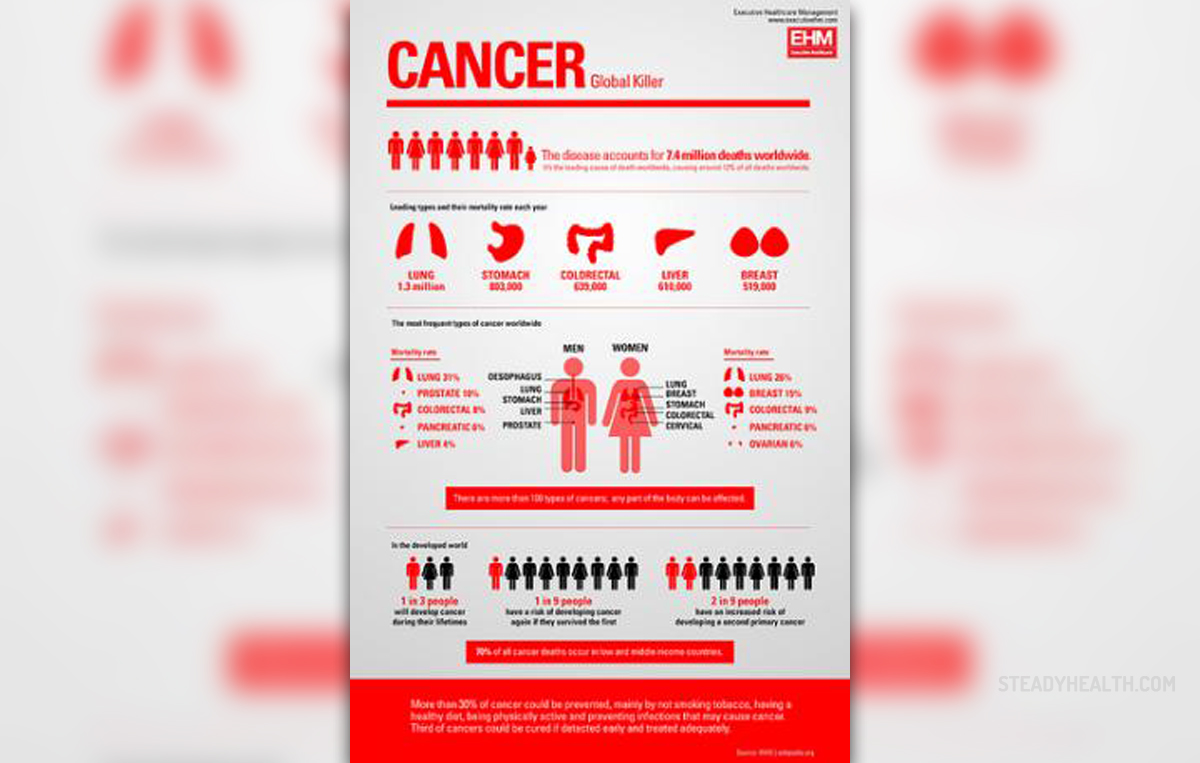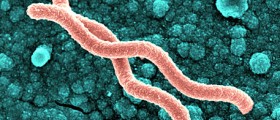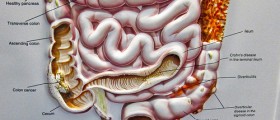
Stomach Cancer
The stomach is a part of gastrointestinal tract. It is situated below the diaphragm. Its primary function is to produce stomach acid which participates in initial digestion of food. A variety of medical condition can affect this organ. It is most commonly affected by peptic ulcers. Still, in certain number of patients this organ can be also affected by tumors. All stomach tumors can be classified into benign and malign. Malign include stomach cancer and lymphoma of the stomach. The cancer can originate from the intact mucous membrane or can develop from already existing stomach polyps.
Unfortunately, in many patients the diagnosis is set when the disease has already advanced. This is why the outcome of stomach cancer is not so good.
The cancer affects man more than women and it is also age related. In some people preexisting medical conditions can lead to its occurrence. They include pernicious anemia, stomach ulcers, polyps, acid reflux, esophageal reflux disease, and chronic atrophic gastritis. Even certain dietary regimes may be potential risk factors for stomach cancer. Stomach cancer is reported to occur after certain surgical interventions such as partial gastrectomy and vagotomy.
In Japan the incidence of this type of cancer is extremely high and this is connected to consumption of too much salty pickled foods. Prolonged consumption of preserved meat may be another risk factor for stomach cancer. And infection with Helicobacter pylori may in some cases be related to the onset of stomach cancer. Furthermore, chronic alcoholics and heavy smokers have better chance of developing stomach cancer. And finally, this cancer runs in some families.
Symptoms of Stomach Cancer
In the very beginning of the disease a patient may complain about burping and hyperacidity. Indigestion may be another symptom of the cancer. Still these symptoms may as well occur in gastritis and peptic ulcers. The pain in the upper abdomen may be additional symptom of the cancer.
Feeling of fullness after eating small portions of food may also point to stomach cancer.
The cancer may bleed and a person can lose blood via stool. This will lead to anemia and its symptoms and signs.
One of the first symptoms of the disease may be blood clots. Namely, people who are suffering from stomach cancer are more prone to blood clots than other people.
In advanced stages of the disease the symptoms include evident loss of appetite and severe loss of weight. Stomach cancer can also cause accumulation of fluid in abdominal cavity. The stool may be dark colored due to severe bleeding. And finally, some patients may vomit and the content can be dark colored and resemble tar. This points to serious bleeding in the stomach.

















Your thoughts on this
Loading...